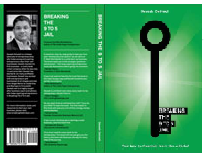Employee Turned Entrepreneur – Greta Lint
Posted Under: Entrepreneurship, Our Heroes
Greta Lint is in the limelight today as she joins the “Our Heroes” series. With years of experience in public relations and tourism marketing, she did not want her versatile background to sit and collect dust. She began her business to provide tourism writing and consulting services and this way she is making the best of her skills and passion. Let’s travel with Greta as she takes us on her employee to entrepreneur journey…
 DD: Who are you and what kind of corporate job were you at?
DD: Who are you and what kind of corporate job were you at?
GL: I was the executive director of the Lexington Tourism Authority, the tourism promotional arm for the city of Lexington, N.C. Prior to my 1999 arrival, the Authority had contracted the local chamber of commerce to do the job. That wasn’t working well, so the contract ended and I was hired to spearhead the organization. During the following four years, chamber reps repeatedly tried to get the tourism authority to relocate and move back in the same building with them, since the tourism authority had money and the chamber was in the hole. Finally, the board agreed and I started looking for a new job. The writing was on the wall. The squeeze was on to once again incorporate the tourism authority into the chamber itself, so my staff and I were pushed out the door. “They”, whoever they are, always say that when you become unemployed, have a plan. Well, I had been sitting on one for many years – to help tourism organizations with their public relations efforts. Within minutes, I notified the N.C. Division of Tourism, Film and Sports Development that I was now on my own providing promotional support for the tourism industry. That office sent out a statewide memo and within two weeks I had my first client. Nationally, there is usually a rift between chamber and tourism organizations over money. In 2009, the Lexington Tourism Authority left the chamber and hired a new Director who has implemented my programming. She had been on my board and was a good friend.
DD: What made you leave the job? When did you realize that you wanted to be an entrepreneur & why?
GL: That’s what “made” me leave the job. Ultimately I would have anyway since I had been preparing mentally for a long time to leave and follow my passion. I had been saving boxes of materials – files, business cards, tourism manuals, books and association memberships – things I could use when I went out on my own. I just needed a financial bridge to carry me forth and the severance package provided that for me. Since my college years in the 70s I had wanted to work in PR, but getting there was a challenge. I didn’t take a direct route. I spent years working in the trenches with OJT – TV, radio, newspaper and then in the tourism promotion world. Throughout all of it I learned the importance of special events. So I had a very diverse background which all pulled together when I started my own company.
Why did I want to be an entrepreneur? Well, I felt I could get more use out of my background instead of just letting it sit and collect dust. And I wanted the freedom of not being boxed in – I wanted to help people and sometimes in the corporate world you’re limited. I could never have done the things I have done, gone the places I have gone or grown personally the way I have if I had just gone onto another job.
DD: What did you do to break the corporate jail? How did you prepare yourself for the employee to entrepreneur transition?
GL: I had taught classes through our local small business program at the community college in the past, so I knew that I needed some quick education. I signed up for a class on determining if your idea was feasible. The instructor and I have remained in contact since 2003. I knew I had a good idea, I knew the industry, I knew how to reach prospective clients and I knew them personally – selling myself was no problem. I didn’t need to use my last name. I had money coming in from clients, so I didn’t need to tap into other funding sources until later on when I learned about the famine in “feast or famine.”
DD: What are your Top 5 tips for employees who want to be entrepreneurs?
GL: 1) Determine if your idea has merit and will make money. Don’t let it be just a hobby.
2) Learn about personal – and business – finance. There will be times when you have no money rolling in to pay your mortgage or electricity bill.
3) Remember that when one door closes, another opens. Perhaps your passion will lead you to your ultimate career. Sometimes a passion can provide a stepping stone. When you’re on your own, the market place changes and you must do so too in order to survive. Be flexible, yet realistic.
4) Network with successful entrepreneurs. Develop a mentor system. Don’t be afraid to ask.
5) Remember that you need self-discipline. You’ll work many more hours for yourself than you ever would for someone else, and it’s not all fun. You’ll have grunt work – filing, paperwork, taxes, reports – all which will distract you from the portion of your new career that you so love. But we all have to do it. And when you get some decent funds in your pocket, hire someone to do that work for you.
DD: How are you now? Are you still in the same business, and how do you feel?
GL: This is 2010 and I’m still in business. Because of the economy and my interest levels I have expanded from festivals and attractions to helping small towns, arts councils, agri-tourism businesses and I have started teaching again at community colleges. I have developed a blog used by colleges and universities worldwide – http://gretastips.blogspot.com – offering free tips on tourism and small business promotion. I am more passionate about what I’m doing because I see a greater need. Periodically I have subcontracted with other writers when I had too much going on. I am working on a couple of things which will lead me into research projects – all related in one way or another to my passion.
I still work out of my den, longing for a real office space. But I’m a micro-business and the setting works for me. Perhaps one day I’ll convert a bedroom into a den again. I work very late and so do some of my clients.
I have won accolades but I think perhaps the best one lately has been that I was asked by UNC Press to review an agritourism manuscript. I was deeply honored. They called me an “expert.” Last year, I won third place for a media kit at the National Federation of Press Women.
Micro-businesses are popping up everywhere, but not all have sustainability. Mine may not either, but I’m digging and scratching my way there. I suppose the most important element of why I like being in business for myself is that I have the freedom not only to set my own schedule, but also to work with my client. I don’t have to “call and ask.”
DD: Wow, thank you so much Greta for sharing your story with me! It is great to hear about how your previous corporate employment pushed you to become and entrepreneur and follow your passion. What a brave move! I wish you all the best in the future.
GL: People often comment about budding entrepreneurs as being “brave.” I still don’t know what that means. I thought the moves I made with my career were out of necessity and just a natural migration. I’ve never considered myself as being brave. Oh, I have been scared a few times, but that goes along with entrepreneurship – feast or famine. But it’s cyclical and you just have to prepare mentally and financially. I also wish you the best of luck Devesh, and thank you for having an interest in my entrepreneurial journey.
DD: Greta Lint everybody, someone whose passion to help tourism organizations with their public relations efforts has blossomed into something amazing and has cemented her in today’s world as a successful and innovative entrepreneur. I really held on to one thing she said: “I wanted the freedom of not being boxed in – I wanted to help people and sometimes in the corporate world you’re limited.” Very true.
Success to all!





